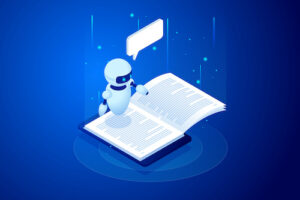Key points:
- The integration of AI in education heralds a new era of personalized learning
- 5 ways AI will impact the workforce–and how higher ed can respond
- ASU, OpenAI look to AI’s future in higher ed
- For more news on AI in education, visit eCN’s Teaching & Learning hub
In an era where AI, ChatGPT, and now the groundbreaking video component using Sora are reshaping the educational landscape, it is conceivable that university professors could become obsolete within this decade. This bold declaration stems from the rapid advancements in AI technologies that promise not only to transform but potentially to eclipse traditional educational models.
The potential of AI to serve as a comprehensive educational tool is unprecedented. ChatGPT and OpenAI’s latest innovation, Sora, are at the forefront of this revolution, offering personalized learning experiences that challenge the necessity of human professors. Sora, in particular, with its capability to create lifelike educational videos from simple text prompts, underscores the immense potential of AI in delivering content that is both engaging and tailored to individual learning needs (Sora Research).
Several compelling arguments underpin the discourse surrounding the replacement of university professors with AI. AI systems possess an unparalleled breadth and depth of knowledge that can be constantly updated in real-time, ensuring that the educational content is current and comprehensive. As Jesse Anglen, CEO and co-founder of Rapid Innovation, noted, the flexibility of AI to adapt to the unique learning styles and needs of each student presents a significant advantage over the one-size-fits-all approach traditionally employed in higher education.
However, the journey toward AI-dominated education is not devoid of hurdles. The intrinsic value of human interaction in the learning process cannot be overlooked. Momo Bertrand, an education specialist at the World Bank, has expounded on education as not merely about information transmission but also about fostering critical thinking, emotional intelligence, and social skills–areas where human educators excel. Additionally, concerns regarding AI’s potential to propagate biases, compromise privacy, and the accuracy of the content necessitate a cautious approach to integrating AI into educational settings.
The successful integration of AI into education requires a cultural shift within academic institutions. Embracing AI tools like ChatGPT and Sora involves recognizing their capabilities and limitations and effectively addressing ethical, legal, and privacy issues. David Weil, Ithaca College’s vice president and chief information officer, stated that cultivating a culture that balances innovation with critical scrutiny is essential for maximizing the benefits of AI while safeguarding against its potential drawbacks.
Harvard University’s pioneering move to integrate an AI chatbot, with capabilities akin to ChatGPT, as an instructor for its Computer Science 50 (CS50) course marks a significant milestone in the evolving narrative of AI in education. This decision underscores the growing acceptance and reliance on AI technologies to deliver educational content and personalize learning at an unprecedented scale. Harvard’s initiative reflects a broader trend towards leveraging AI to address longstanding educational challenges, such as achieving a personalized learning experience for each student.
The development of the AI instructor, based on OpenAI’s ChatGPT 4 and Sora models, exemplifies the potential of AI to support and enhance learning by providing 24/7 assistance tailored to each student’s individual needs and pace. This approach aligns with the broader vision of utilizing AI to democratize access to quality education and optimize learning outcomes.
In closing, the assertion that AI could render university professors obsolete within this decade is not merely speculative but a plausible forecast given the trajectory of technological advancements. The integration of AI in education, exemplified by tools like ChatGPT and Sora, heralds a new era of personalized learning that could supplant traditional teaching methods. Nonetheless, the transition towards AI-driven education must be navigated with a nuanced understanding of the role of human educators.
The future of education lies not in replacing professors but in the harmonious integration of AI technologies that augment the educational experience. As we stand at the precipice of this educational revolution, the challenge lies in harnessing the power of AI to enhance learning outcomes without diminishing the invaluable human essence of teaching and mentorship.

